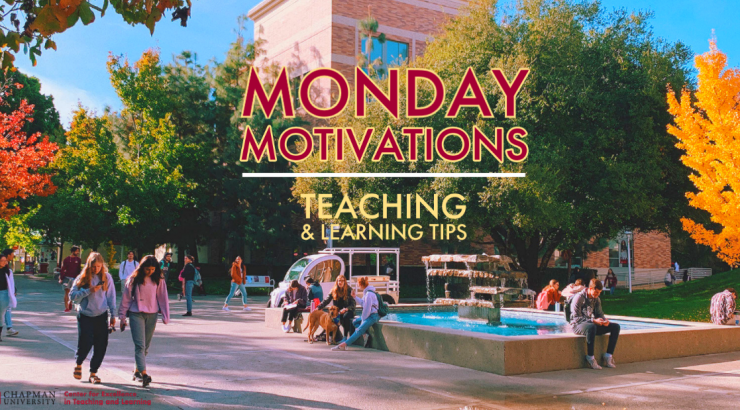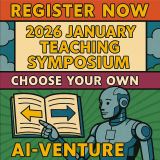
Tips for the Week of May 15, 2023
May 11, 2023
Using Multimedia to Improve Learning and Career Readiness
“Preparing our students for a professional world that relies increasingly on digital media and communication to fuel values-driven innovation, collaboration, and productivity” (Bass & Lawrence-Riddell, 2020, para. 2) necessitates an instructional approach that effectively integrates technology and facilitates the development of digital literacy skills. Considering both multimedia theory and Universal Design for Learning (UDL) principles in the design of your course allows for the integration of real-world digital technologies. Multimedia theory argues that our brains can more effectively process and integrate new information when information is received in multiple ways. The principles behind UDL build on this theory, suggesting we have students both acquire and demonstrate information in innovative ways. Some strategies for creating multi-modal learning activities include audio reflection assignments, video-based exit tickets, giving students the option to either write or record reflections or responses to prompts, or having students use or create images to respond to a prompt. Providing various ways for students to learn and demonstrate knowledge or skills can be also effective in improving student engagement and motivation.
First and Last Day Reflective Activity Deepens Learning
Do you reserve time on the last day of class to have students reflect on what they learned over the semester? James Lang (2006) and Maryellen Weimer (2005) discuss how instructors can use reflective activities to help students make important connections between and among concepts, but also to attach meaning to the learning experiences you designed for them. For example:
On the first day of the semester, pass out index cards to the class. Ask students to 1) identify themselves by name or a memorable code and 2) individually answer the following prompts:
- What do you expect to learn (i.e., know or better understand) in this course?
- What type of skills would you hope to develop in this course during the semester?
- What reasons can you think of that might explain why this course is (or should be) required for all students? In other words, what is the value of this course?
On the last day of the semester, pass back those index cards to each student and give them time to reflect on their initial answers. Most importantly, how did the course measure up in relation to their expectations and general attitude about taking this course? In addition, ask if they learned or gained anything they were not expecting. Next, place the students in groups of 3-5 to discuss their answers. Debrief as a whole class and try to identify major takeaways. This information, in combination with your course evaluation data, can be important to continuous improvement efforts.
A Lack of Belonging Associated with Depression
While having a sense of belonging is important throughout our lifespan, feeling included is especially important during lifetime transitions, such as starting college. It is widely known that for first-year college students, belonging is positively correlated with student engagement and development. More recently, researchers found belongingness has consequences for students’ mental health and well-being. Specifically, lower feelings of belonging early in the academic term may place students at a higher risk for depression (see this 2022 study). As you close out the semester, begin a new trimester, or prepare for summer session, ask yourself: to what degree did or does my course design and instructional approach incorporate the following “college experiences” found to positively impact students’ sense of belonging?
- Maintains a supportive and inclusive classroom environment.
- Provides regular opportunities for quality interactions with others.
- Uses “evidence-based” teaching strategies.
- Integrates learning strategies into the curriculum.
- Aims for higher-order learning/critical thinking (vs rote memorization).
Want to learn more? We encourage you to attend Chapman’s Inaugural Conference on Innovative Teaching and Student Success this summer (August 14-16). This year’s theme is Balancing Rigor and Compassion: Supporting Students on Their Path to Greatness. More information to follow.
Interested in exploring any of these ideas further or discussing how you might implement them in your own teaching practices? Is there a tip you’ve tried that you would like to share with colleagues? Contact CETL or schedule a consultation to continue the conversation.


